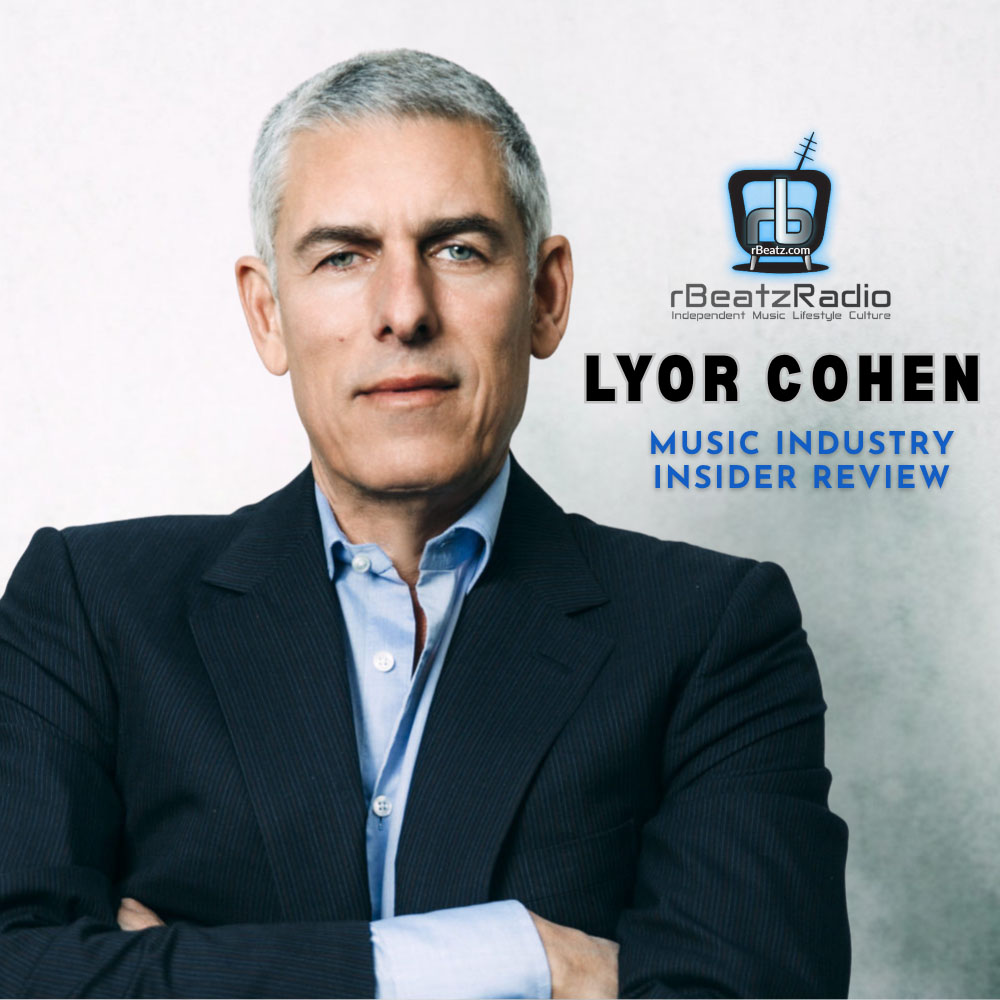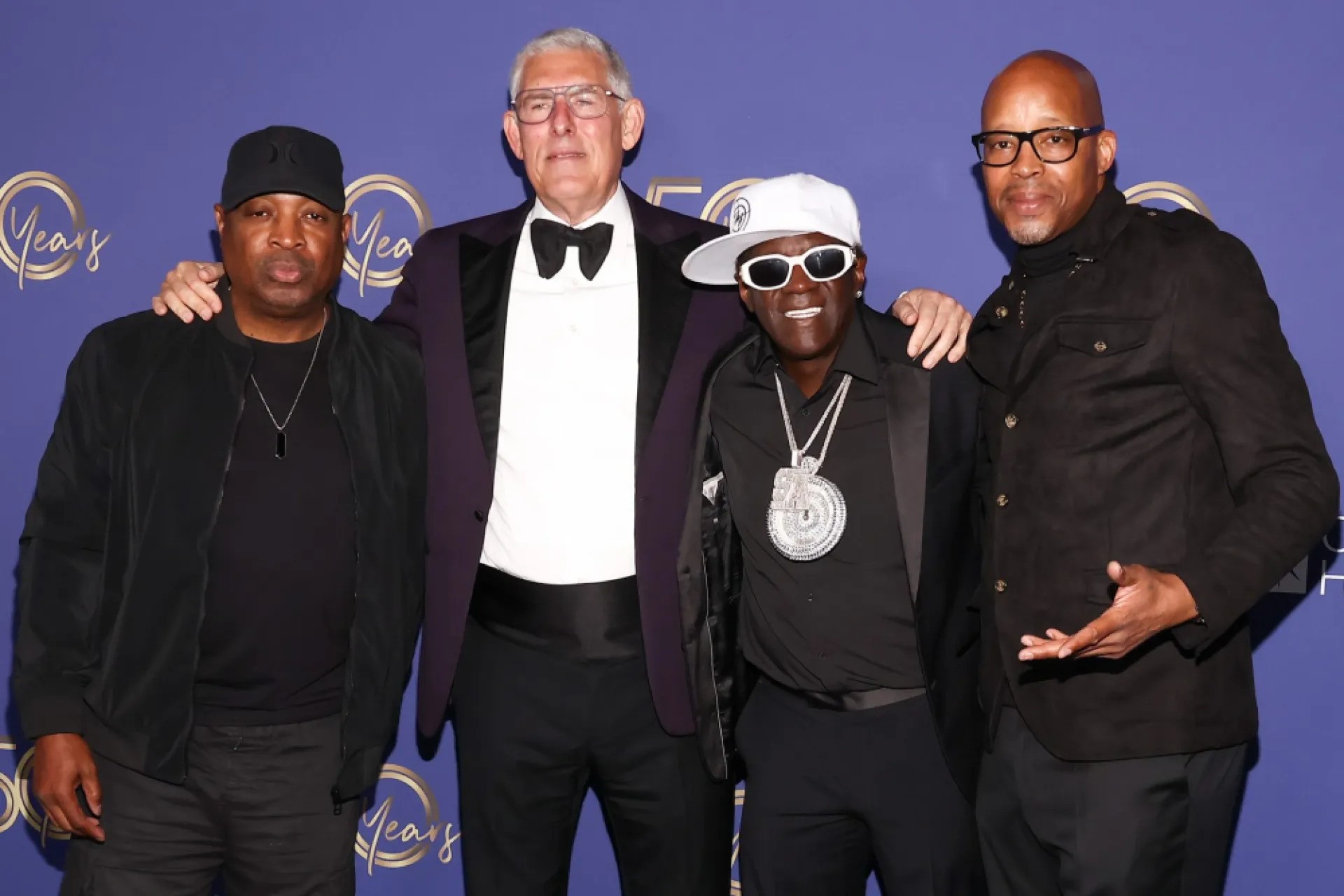The music industry has evolved considerably over recent decades, and things are not slowing down. From styles and genres to creative technologies and distribution methods, how people make and sell music has changed beyond recognition. Throughout this novel period, Lyor Cohen has led the charge. Since his early days as a young hip-hop executive to his later role as a music industry heavyweight, he continues to shape the sounds and culture we know and love.
Let’s learn all about Lyor Cohen. From his important contributions in the ’80s to his new innovative role in digital distribution, he’s one of the most influential figures in the history of the music industry.
Family life and education
Lyor Cohen was born in New York on October 3, 1959. His parents had just arrived from Israel, making their new home in 1955 before starting a family. Cohen had an eventful childhood, with his early years spent between the Big Apple and an avocado farm in Israel. He spent time with a foster family in his parents’ homeland when they divorced, before moving to California with his mother and stepfather. Cohen’s early years had a bohemian flavor, with his “very hippy Jewish family” into classic literature, music, and dance.
Now settled on the West Coast, Cohen attended John Marshall High School in Los Feliz, Los Angeles. His stepfather worked as a psychiatrist, one of the pioneers of the “classroom without walls” education system. Cohen had more freedom than his peers, and he took advantage of it by immersing himself in local culture. The young man already had wide-ranging music tastes due to exposure at home, with his parents wiring up a record player to the intercom system. The home was constantly enveloped by sound, from classical music to Dixieland jazz.
Cohen’s home environment was very creative, and his exposure to art wasn’t limited to music. Local artists would showcase works at the home. Poetry readings were held. And people would gather and connect in the friendly environment. Music was always the centerpiece, however, and everyone in the house was impacted. Lyor Cohen grew up to become one of the most important music executives in American history, and his younger brother, Daniel Shulman, became the bass player in the band Garbage.
After graduating from high school, Cohen moved to the East Coast and received a degree in global marketing and finance from the University of Miami. The young graduate then moved back to Los Angeles, working briefly at Bank Leumi in their Beverly Hills office. He was on a pretty healthy salary of $14,000 at the time, but he hated every minute of it. When the reality of his new banking life kicked in, it didn’t take long for Lyor Cohen to make the best decision of his young life.
Early career and life lessons
It was the early 1980s, and music culture in America was about to explode. Disco and punk had changed the landscape for good, and hip-hop was emerging from the underground to become a dominant force. While the young Lyor Cohen had always been surrounded by music, something new and exciting was definitely in the air. When he saw hip-hop crew Uncle Jamm’s Army take the stage at the Civic Center, a light bulb went off and his life changed for good.
Unlike his parents, Cohen always had a commercial bent. It wasn’t just about creative expression for the young man; he wanted to put his marketing studies to good use. He decided to put on a late-night show, where “unsigned Hollywood acts like the Red Hot Chili Peppers and the Circle Jerks co-mingled with Run-DMC.” He borrowed $700 from his mother, quickly got to work, and ended up making $36,000 from the event.
His second show wasn’t such a success, however, wiping him out financially but giving him some great life lessons. “It was less a crash course in the music business and more a crash course in life,” he says, adding, “I remember the feeling of extreme pain below my heart and above my stomach. It was so acute that it is really one of the pains and feelings that I have run from my entire life.”
Def Jam and Universal Music Group
Russell Simmons took note of Cohen’s career, and asked him to join Rush Management on the East Coast. He was invited to New York to work with an amazing roster that included Run-DMC, LL Cool J, the Beastie Boys, and Public Enemy. Cohen was even mentored by Jam Master Jay from Run-DMC, and together they set up the band’s endorsement deal with Adidas. This was the first-ever marketing deal between an artist and an athletic company, and it kicked his career up a new level.
The Big Apple was an exciting place for art in the ’80s, with hip-hop music gaining traction and giants like Andy Warhol and Jean-Michel Basquiat making their best work. While the culture wasn’t immediately accepted by African Americans, let alone wider society, people were curious about the new beats and rhymes of hip-hop. Cohen graduated from Rush Management to Def Jam Recordings after a few years, becoming president there in 1988. Along with Island, A&M, and Motown, this small hip-hop label was purchased by PolyGram to become Universal Music Group. The initial money for this deal came from early CD sales, and it’s now the biggest record company in the world.
From raw talent to global stars
Over the years, Lyor Cohen has worked with some of the biggest names in hip-hop. From Jay-Z to Kanye West, from De La Soul to A Tribe Called Quest, he transformed raw talent into global superstars. It all started with Def Jam, which would become the single biggest record label in the history of rap music. Not only did Cohen have a fantastic ear for talent, but he also had lots of creative ideas. While many DJs refused to play records by Def Jam artists due to their obscene lyrics, Cohen marketed the music directly to consumers.
Lyor Cohen has been a strong advocate for artists his entire career. Along with hip-hop heavyweights, he gave modern rappers like Migos and Young Thug their first big breaks. Young Thug hadn’t even heard of Run-DMC when he was signed, which highlights Cohen’s longevity in the music industry. Along with the names already mentioned, Def Jam also signed Slick Rick, DJ Jazzy Jeff & the Fresh Prince, Eric B. & Rakim, and many others. Along the way, Cohen even taught Jay-Z about business, passing down lessons taught to him by the great Jam Master Jay.
Beyond the world of hip-hop
Lyor Cohen’s career started with hip-hop, but that’s certainly not where it ended. After negotiating Def Jam’s departure from Sony in 1994, Cohen worked custom label deals with the likes of Roc-A-Fella Records and Disturbing Tha Peace. Def Jam merged with Island and Mercury to create Island Def Jam Music Group in 1998, with Cohen himself named as co-president. This new label gave him freedom to move beyond hip-hop, and that’s exactly what he did. The new label signed some of the biggest artists in the world, releasing music across a wide range of music genres.
From global superstars like Bon Jovi and Mariah Carey to established names like Shania Twain and Elvis Costello, Cohen was creating something huge. Island Def Jam Music Group even started releasing heavier music, including names like Slipknot, The Killers, and Slayer. Lyor Cohen kept moving with the industry, leaving Island Def Jam for a position at Warner Music Group in 2004. He mentored Julie Greenwald, who became the highest-ranking female executive at an American record company in 2009. Cohen left Warner in 2012 after licensing content to YouTube and Spotify as a global digital innovator.
The next move for Lyor Cohen was something of a surprise: starting a new company called 300. Named after the Spartan warriors, this was a bold move and also something of a risk. According to Cohen, “I’ve been an outsider in the traditional record industry for more than 25 years… I’m an entrepreneur, so I encourage risk-taking. And the only way to encourage risk-taking is to take risks yourself… I’ve always been willing to be that guy.”
300 is part record label, part marketing company, and part distributor, with major backing coming from Google and Atlantic.
The Lyor Cohen formula
To understand why Lyor Cohen is such an important figure, we need to dive into his philosophy. While he’s the first to admit being in the right place at the right time, his fighting spirit is a much bigger part of the story. Cohen’s approach to art and business can be traced back to his family life, where he always felt like the black sheep. While his parents were creative artists, he wanted to turn this energy into something more tangible. Almost existing between worlds, he found a way to harness the creative spark and make it something real.
When working with new artists, Cohen always takes time to learn what makes them tick. Historically, he wouldn’t sign anyone until he visited their homes and got to know them properly. Almost more than talent, he loves curious people who aren’t afraid to communicate and connect with the world around them. Cohen says it best himself: “And I wasn’t a sonic person, I was a person person. If someone had a natural smile, that was supported early on by their mother, that had a musical inspiration from a grandparent — that was a winning combination to me.”
From the survival of the ’80s to the hedonism of the ’90s and innovations of the new millennium, Lyor Cohen is an integral part of the American music story. While he’s a long way from the trenches of yesteryear, he keeps plugging away today, in an effort to discover and nurture the talent of tomorrow.


